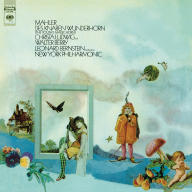Her parents were both singers (tenor Anton Ludwig, who later became a stage director and mezzo Eugenie Besalla-Ludwig), and her first vocal studies were with her mother, who also taught her piano, flute, and cello. Her first performances were in 1954, at the age of 17, singing operatic arias she had learned from growing up in the theater. She made her opera debut as Prince Orlofsky in Strauss' Die Fledermaus in 1946, at the Frankfurt State Opera, where she was a member of the company until 1952, when her mother encouraged her to move to Darmstadt to study acting with the director Gustav Sellner. After two years, she and her mother (who was still teaching her) moved to Hanover, where she began to sing leading roles such as Carmen, Ortrud, and Kundry. Her Salzburg debut was in 1954 as Cherubino, and was followed by her 1955 debut in the same role at the Vienna State Opera, at the invitation of Karl Bohm, where she sang for more than 30 years. In 1957, she sang with Elisabeth Schwarzkopf, who encouraged her husband Walter Legge, the famous producer, to sign Ludwig to EMI. Her United States debut was in 1959 in Chicago, as Dorabella. In the '70s, she went through a vocal crisis due to menopause, and she took some of the most demanding roles out of her repertoire and gave more attention to songs and lieder. Again she challenged the typical views of repertoire, and sang material such as Winterreise, that are most often associated with male voices, especially baritones. Working with Leonard Bernstein, she developed a special affection for Mahler (whose music Bernstein championed when Mahler was relatively obscure.)
She was married to bass Walter Berry from 1957 until 1971, and their son, Marc Berry, is a popular song composer. She has a wide recorded legacy; among the best of her material is Das Lied von der Erde under Bernstein (Sony) and a Brangane in Tristan und Isolde, with Vickers as Tristan and Dernesch as Isolde, under Karajan (EMI). Christa Ludwig died on April 24, 2021 at the age of 93 at her home near Vienna. ~ Ann Feeney, Rovi















